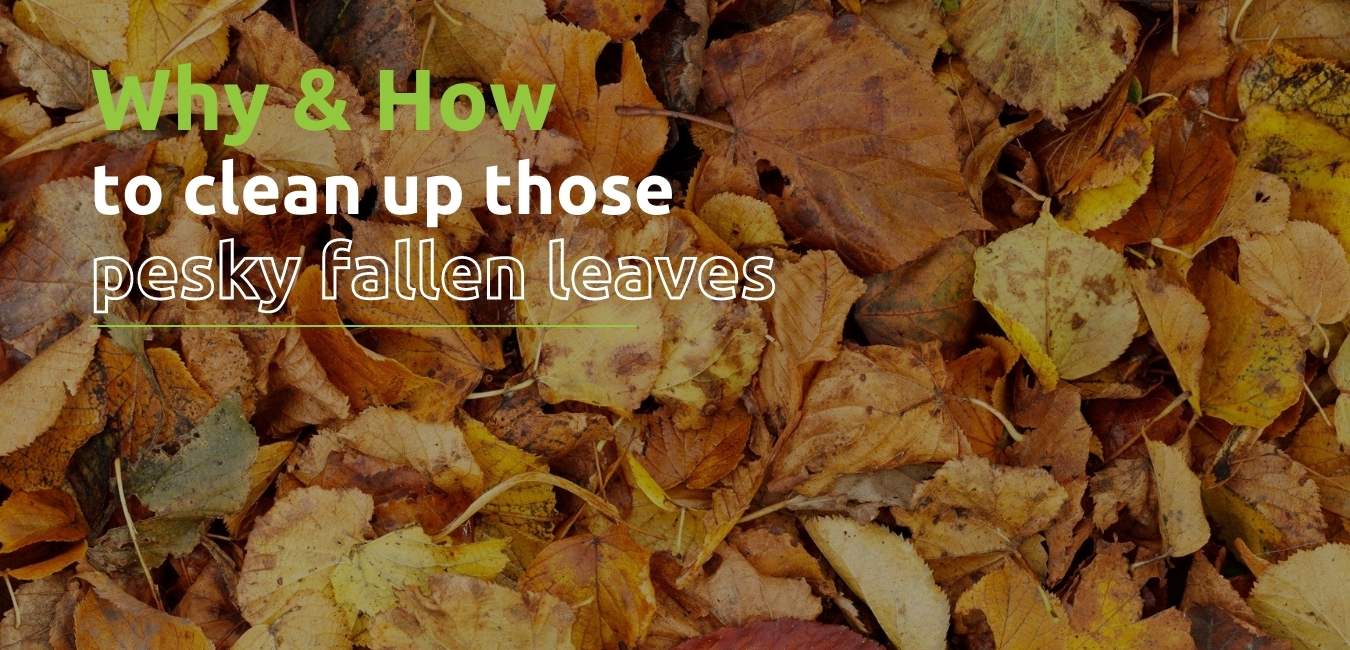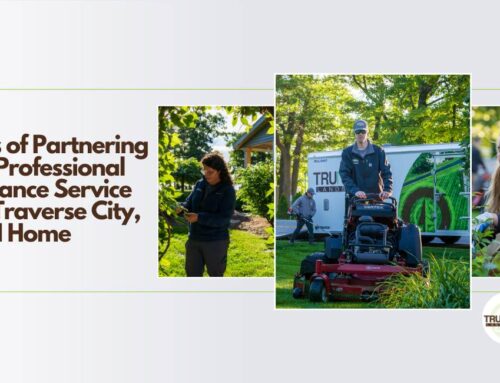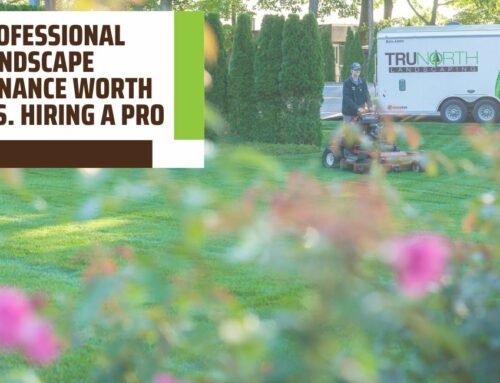
No matter where you live, nearly every homeowner dreads the task of fall cleanup. While the season is undeniably beautiful, with vibrant leaves and cooler weather, those colorful leaves quickly become a burden once they pile up. The wet, cold, and rainy conditions make the job even harder, leaving many of us postponing it. However, preparing your yard for winter is a critical step in maintaining a healthy lawn.
Ignoring the task or leaving too many leaves on your lawn can cause serious damage, leading to a rough start come spring. Here’s why fall cleanup is so important and how to make it a little easier this season.
Why You Must Remove Leaves From Your Lawn
Leaves, especially when wet, pose several threats to your lawn. Here are the main reasons why you should prioritize leaf removal:
- Wet Leaves Smother Your Grass
Wet leaves are heavy and form a dense layer that blocks sunlight and air from reaching your grass. This smothering effect weakens your lawn, and when spring arrives, the grass will struggle to grow through the decaying leaf cover. A thick blanket of leaves left to rot over the winter can lead to dead patches of grass, which will require extra care and time to restore later. - Mold and Fungal Growth
While it’s true that leaves eventually decompose, they can create unhealthy conditions for your lawn if left unchecked. Piles of damp leaves become a breeding ground for mold, mildew, and fungus, which can spread to your grass. If your lawn becomes infected with mold or fungal diseases, it can lead to discoloration, bare patches, and long-term damage. - Unwanted Pests
Fallen leaves create a perfect habitat for pests like mice, moles, and voles. These critters love the insulation provided by piles of leaves and are known to burrow beneath them. Their presence in your yard can lead to chewed grass roots, unsightly holes, and a damaged landscape, making it even harder to maintain a healthy lawn come spring.

Tips for a Smooth Fall Cleanup
While fall cleanup is essential, it doesn’t have to be overwhelming. With the right approach and tools, you can tackle this task efficiently and with less hassle. Here are some tips to make your fall cleanup easier:
- Use a Leaf Blower or Leaf Vacuum
A leaf blower or leaf vacuum can make quick work of large leaf piles. We recommend using a gas-powered blower, as it offers greater mobility and power than electric or battery-powered models. You won’t be restricted by a cord, and you’ll have the muscle you need to move those heavy, wet leaves. - Utilize Leaves as Mulch in Garden Beds
While leaving leaves on your lawn is a bad idea, a thin layer of leaves in your garden beds can be beneficial. When left in moderation, leaves can act as mulch, breaking down over time to fertilize the soil for the upcoming year. They can also protect bulbs and soil from harsh winter conditions. Just be careful not to overdo it—too many leaves can smother your plants and attract pests. - Don’t Forget the Gutters, Roof, and Foundation
Leaves have a way of sneaking into all the wrong places, such as your gutters, roof, and around your foundation. Clogged gutters can lead to ice dams, which can cause major damage to your roof or siding during the winter. Similarly, leaves piled against your foundation can encourage mold growth, which can lead to structural problems. Make sure to clear these areas to prevent costly repairs. - Use a Tarp to Transport Leaves
One of the best ways to gather and move large amounts of leaves is by using a tarp. Lay the tarp out on your lawn, rake or blow the leaves onto it, then drag the tarp to your compost pile or the curb for collection. It’s an easy and efficient way to transport leaves without having to make multiple trips with smaller containers. - Apply Fall Fertilizer
Once your yard is free of leaves, give your lawn a little boost with a fall fertilizer. This will encourage root growth during the cooler months, so your grass will come back strong in the spring. Opt for a fertilizer that’s high in potassium to help your lawn build resilience against the cold and stress of winter. - Give Your Lawn a Final Mow
Before winter hits, give your lawn one last mow. Lower the height of your mower to trim the grass a bit shorter than usual. This allows the soil to dry out faster and prevents it from becoming matted down under snow. A shorter cut also helps your lawn grow back more lush and green when the weather warms up.

The Benefits of Professional Fall Cleanup Services
If the thought of tackling all these tasks yourself seems overwhelming, you’re not alone. Many homeowners prefer to leave their fall cleanup to the experts. Hiring a professional lawn care service ensures that your yard is properly prepared for winter, saving you time, effort, and potential frustration.
At TruNorth, we specialize in comprehensive fall cleanup services, including leaf removal and lawn care preparation. Our team can handle the hard work so you can enjoy the beauty of the season without the stress. We’ll also provide expert advice on lawn care, helping you maintain a lush, healthy lawn year-round.
Preparing your yard for winter with a thorough fall cleanup may seem like a daunting task, but with the right approach, it can be manageable—and rewarding. If you need assistance or want to ensure your yard is ready for the colder months, our team of fall cleanup experts is here to help. Reach out to us today for a professional and stress-free fall cleanup experience!
Need help caring for your property through all the seasons? TruNorth is here to help! Get started by filling out our contact form!
Image Source: Canva Professional Free Use Images, Images Property of TruNorth Landscaping
Get started today with a consultation!
Want tips and tricks for your lawn & landscaping?
Sign Up For Our Free Quarterly Newsletter
We take your personal information very seriously. We will not share any of the information you provide with any 3rd parties. Provided information will be used specifically to contact you in regards to your inquiry.





